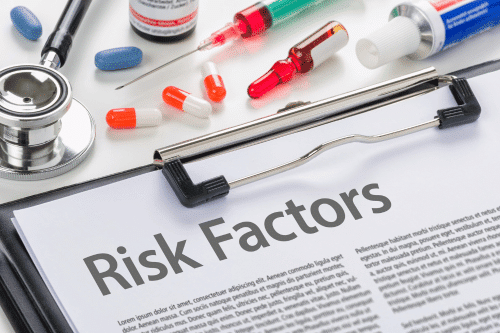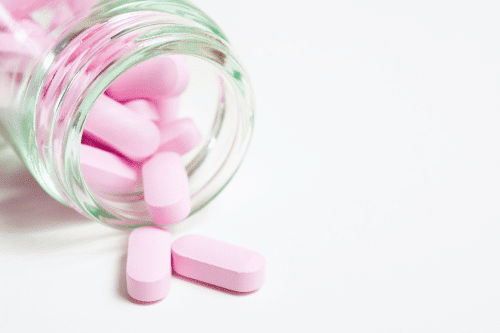Benadryl Addiction: Understanding the Risks and Treatment Options
Benadryl addiction is a growing concern, especially as individuals misuse this common counter medication for its sedative effects. Known for its active ingredient, diphenhydramine, Benadryl is widely available and often used to manage symptoms of allergy and cold symptoms. While helpful when used correctly, long-term abuse can lead to significant health risks and addiction.
Understanding Benadryl (Diphenhydramine)
Intended Uses and Benefits
Benadryl, a counter antihistamine medication, is primarily used to treat symptoms of allergy, such as runny nose, itchy skin, and watery eyes. It also helps alleviate cold symptoms like sneezing and congestion.
Common Medical Applications
This counter drug is effective for treating motion sickness, insomnia, and allergic symptoms. Diphenhydramine’s sedative properties are beneficial for managing sleep disturbances and severe symptoms of allergic reactions. In some cases, it is used as part of treatment for individuals with muscle spasms or as a muscle relaxant. However, its anticholinergic effects can contribute to health risks when misused over an extended period.
The Rise of Benadryl Addiction
Reasons for Misuse
Benadryl misuse often begins with its sedative effects, making it appealing as a sleep aid. Over time, individuals may increase their dose of diphenhydramine to achieve the same results, leading to the development of tolerance. Some people misuse it to experience euphoric effects or mild hallucinations, unaware of the adverse effects this can have on their health.
Sedative Effects and Sleep Aid Usage
Many rely on Benadryl to combat sleep disturbances without consulting a doctor for advice. Chronic diphenhydramine abuse often replaces healthier sleep strategies, leading to full-blown addiction. This behavior increases the risk of severe side effects, including cognitive decline and memory impairment.
Identifying Benadryl Addiction

Symptoms and Signs of Addiction
Signs of diphenhydramine addiction include drug-seeking behavior, taking higher-than-recommended doses, and difficulty functioning without the medication. Other symptoms include:
- Poor coordination
- Muscle aches
- Enlarged pupils
- Flushed skin
Behavioral Indicators
Addictive behaviors, such as secretive behavior and neglecting everyday tasks, often accompany Benadryl addiction. History of substance abuse or co-occurring mental health disorders may also increase the risk of addiction.
Withdrawal from Benadryl
Common Withdrawal Symptoms
Withdrawal from Benadryl can cause distressing symptoms, including gastrointestinal issues, muscle aches, sleep disturbances, and flu-like symptoms. Individuals may also experience psychological effects like irritability, anxiety, or distressing dreams.
Duration and Intensity of Withdrawal
The withdrawal process varies but typically lasts a period of time ranging from several days to a week. The intensity depends on factors such as long-term use and underlying issues like co-occurring mental health conditions.
Overdose Risks
Signs of a Benadryl Overdose
Diphenhydramine overdose symptoms include:
- Irregular heartbeat
- Flushed skin
- Cognitive impairment
- Severe anticholinergic effects, such as urinary retention
Emergency Response and Treatment
If someone experiences overdose symptoms, seek medical advice immediately. Emergency treatments for antihistamine addiction may include activated charcoal to reduce absorption and IV fluids to stabilize blood pressure. Without timely intervention, the risk of overdose can lead to fatal outcomes.
Health Risks of Benadryl Misuse

Short-Term Effects on Health
Short-term misuse of Benadryl can cause dry nose, digestive issues, and poor coordination. Some individuals may notice mild psychoactive effects that impair their ability to perform everyday tasks.
Long-Term Health Consequences
Long-term abuse of Benadryl can lead to severe side effects, including memory loss, cognitive impairment, and anticholinergic effects like urinary retention and blood flow issues. Chronic diphenhydramine abuse has been linked to co-occurring mental health concerns, further complicating recovery.
Treatment Options for Benadryl Addiction
Medical Management Strategies
Addiction treatment often begins with medical supervision to manage withdrawal symptoms and minimize adverse effects. Medication-assisted treatment may be necessary for individuals with severe symptoms or co-occurring mental health conditions.
Structured Recovery Programs
Inpatient treatment, intensive outpatient programs, and residential treatment programs offer a range of services, including individual therapy, family therapy, and behavioral therapy. Cognitive-behavioral therapy (CBT) is particularly effective in addressing the psychological aspect of addiction and helping individuals manage addictive behaviors.
Seeking Help in Los Angeles And Orange County, CA
Local Treatment Resources
Los Angeles and Orange County offer specialized addiction treatment programs for diphenhydramine addiction and other substance use disorders. Facilities such as Opus Treatment provide expert care, including medical professionals trained to handle the effects of diphenhydramine misuse.
Support Groups and Community Services
Support groups like 12-step programs and outpatient programs can help individuals during the recovery process. Community services in Los Angeles also offer education on safe medication practices and resources for addiction treatment.
Safe Medication Practices
Understanding Dosage and Contraindications
Always follow the usual dose of diphenhydramine as recommended. Combining Benadryl with antipsychotic drugs, anticholinergic drugs, or monoamine oxidase inhibitors can increase the risk of dangerous effects.
Educating on Risks for Special Populations
Special populations, including older adults, pregnant women, and individuals with co-occurring mental health disorders, should seek medical advice before using Benadryl to avoid adverse effects.
Benadryl addiction is a serious issue that can lead to significant health risks if left untreated. Understanding the risks of long-term abuse, recognizing symptoms, and seeking effective treatment are crucial steps toward recovery. If you or a loved one struggles with diphenhydramine addiction, reach out to addiction specialists or a drug addiction treatment center in Los Angeles. With the right care, long-term recovery is possible.
Add Your Heading Text Here
When taken as directed, Benadryl is generally safe and non-addictive. However, prolonged use beyond the recommended dosage or for unintended purposes, like as a sleep aid, can lead to dependency. Misusing Benadryl for its sedative effects or psychoactive effects increases the risk of addiction and long-term health consequences.
Common signs of Benadryl addiction include taking higher-than-recommended doses, experiencing withdrawal symptoms when attempting to stop, and displaying drug-seeking behavior. Physical symptoms like poor coordination, memory impairment, and urinary retention may also indicate misuse. Behavioral changes, such as secretive habits and neglect of responsibilities, are additional red flags.
A Benadryl overdose can be extremely dangerous, leading to severe symptoms like irregular heartbeat, flushed skin, muscle spasms, and cognitive impairment. In some cases, it may cause life-threatening complications, such as respiratory failure or coma. Immediate medical attention is crucial to prevent fatal outcomes.
Treatment for Benadryl addiction often begins with medical supervision to manage withdrawal symptoms safely. Options include inpatient treatment, outpatient programs, and intensive therapy, such as cognitive-behavioral therapy (CBT). Addiction specialists may also recommend medication-assisted treatment to address severe withdrawal or co-occurring mental health conditions. Support groups like 12-step programs and individual therapy can provide ongoing help throughout the recovery process.




